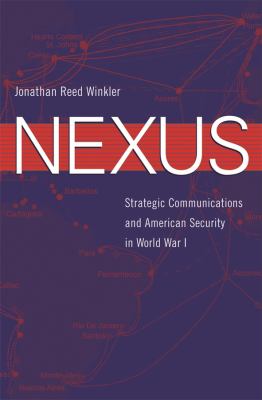
Book
|
Nexus : strategic communications and American security in World War I
Copies
4 Total copies, 4 Copies are in,
0 Copies are out.
Title
Nexus : strategic communications and American security in World War I
Call No
D619
Authors
Subjects
World War, 1914-1918--United States.
World War, 1914-1918--Diplomatic history.
National security--United States--History--20th century.
Strategy--History--20th century.
World War, 1914-1918--Communications.
Communication, International--History--20th century.
Communication in politics--United States--History--20th century.
United States--Foreign relations--1913-1921.
World War, 1914-1918--Diplomatic history.
National security--United States--History--20th century.
Strategy--History--20th century.
World War, 1914-1918--Communications.
Communication, International--History--20th century.
Communication in politics--United States--History--20th century.
United States--Foreign relations--1913-1921.
Language
English
Published
Cambridge, Mass. : Harvard University Press, 2008.
Publication Desc
347 p. : ill., maps ;
ISBN
9780674028395
(alk. paper)
LCCN
2007043112
Series
Target Audience
Unknown or not specified
Dimensions
25 cm.









